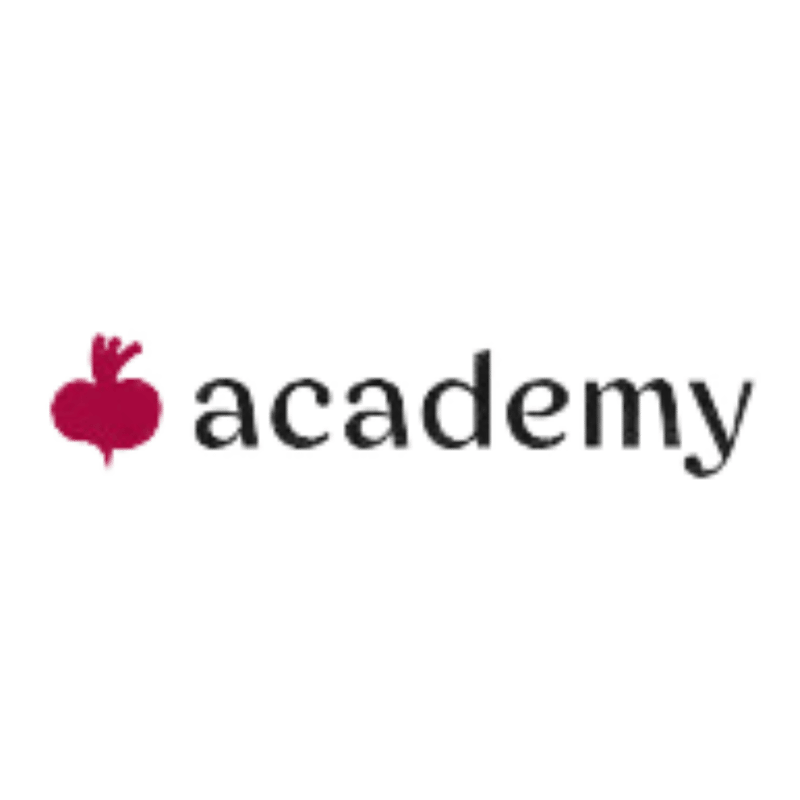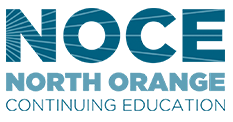
Financial aid (may be available)

Financial aid (may be available)

No cost info

Financial aid (may be available)
No cost info

$220 to start
$440 total

No cost info
$3,550 total
Financial aid (may be available)
OPTI Medical Systems supports the Online Quality Assurance Program (QAP) to add value to your OPTI CCA-TS2 analyzer. Online QAP facilitates the evaluation of quality control (QC) data with that of your peers for trends and shifts. Do not miss out on these valuable services that OPTI Medical provides OPTI analyzer users at no additional charge.
No cost info
The Graduate Certificate in Quality Assurance Compliance provides an in-depth knowledge of the global regulatory and compliance requirements for the development, marketing approval, and clinical utilization of biomedical products in today’s dynamic global healthcare environment.
No cost info
This program is designed for the chemist, bio-chemist or biologist in the pharmaceutical and biologic industry new to quality assurance and control, and is beneficial to senior year undergraduates and graduate students (using concurrent enrollment) interested in a career in QA/QC.
The program focuses on the quality requirements for the production and control of biologics and drugs, and the differences between quality control and quality assurance and their interaction with manufacturing. It highlights the importance of implementing and maintaining a quality system during the early stages of drug development, including the plethora of documents and controls necessary to make such a system effective. Guidelines and regulations from the FDA and the California State food and drug branch regulate the production of drug products. Quality Assurance (QA) monitors the manufacturer's compliance to these guidelines and regulations.
Instruction covers how to write, issue and control SOPs; manufacturing directions; and how to review and archive a batch history and other relevant documents. Emphasis is placed on conducting inspections and vendor audits for compliance to cGMPs to include contract manufacturers, bulk pharmaceutical chemical manufacturers and contract test laboratories. The program covers cGLPs and their applications to audits of facilities that provide toxicological services. Details on compiling, writing and archiving audit reports is provided.
No cost info
Quality assurance training helps applicants for understanding the basic concepts of information technology and software testing which help them excel as Quality Assurance (QA) specialists. The quality assurance course also covers physical products in determining defects in manufactured products and preventing them, pre-production, SDLC-Software Development Life Cycle, Production Environment vs Sandbox Environment, Mantis Bug Tracker, and many more. During the QA online training, you will learn how to decode the application of dynamic and static techniques, conduct walk-thoughts and audits, create a quality analysis, perform boundary value analysis, and test plan hands-on through this Quality assurance certification training.
No cost info
Mount St. Mary’s University is home to Maryland’s only certificate in quality assurance and regulatory science (QA/RS). The fully online program prepares you to lead your company through the efficient delivery of high-quality products within a competitive market.
No cost info
Are you interested in pursuing a career in Quality Assurance? If you're located in Greensboro, you're in luck! There are several options for Quality Assurance classes in your area that can help you gain the skills and knowledge needed for this in-demand field. In this blog post, we will explore what Quality Assurance is, the training requirements, what to look for in a class, what to expect from the day-to-day, the certification process, how to find related jobs, and other classes you can take after becoming a Quality Assurance professional.

Quality Assurance, often referred to as QA, is a critical component of many industries, including manufacturing, healthcare, and technology. Its primary goal is to ensure that products or services meet or exceed customer expectations. A Quality Assurance professional is responsible for developing and implementing processes and procedures to guarantee consistency and quality throughout the production or service delivery process.
Quality Assurance involves a set of activities and processes designed to ensure that products or services meet predetermined quality standards. These standards are often established by regulatory bodies or industry organizations. QA professionals focus on preventing defects or errors from occurring rather than just detecting and fixing them after the fact. By implementing rigorous quality control measures, they help organizations save time, money, and resources while ensuring customer satisfaction.
To become a Quality Assurance professional, you typically need formal training and education in the field. While there are no specific educational requirements, most employers prefer candidates with a bachelor's degree in a relevant field such as engineering, business, or computer science. However, some employers may accept candidates with an associate degree or relevant work experience.
In addition to formal education, there are several certifications available in Quality Assurance that can enhance your credentials and job prospects. Some of the most recognized certifications include:
These certifications demonstrate your expertise and commitment to quality to potential employers and can give you a competitive edge in the job market.
When looking for Quality Assurance classes in Greensboro, there are a few key factors to consider to ensure you find the best program for your needs:
Accreditation: Look for classes offered by accredited institutions or training providers. Accreditation ensures that the program meets certain quality standards and that the curriculum is up-to-date and relevant.
Curriculum: Review the course syllabus to ensure that the program covers all the essential topics and skills required for a career in Quality Assurance. Look for classes that offer a comprehensive curriculum that includes both theoretical knowledge and practical hands-on experience.
Instructor Qualifications: Research the instructors' qualifications and industry experience. A knowledgeable and experienced instructor can make a significant difference in the quality of your learning experience.
Resources and Facilities: Consider the resources and facilities available to students. Quality Assurance often involves working with specialized equipment and software, so it's essential to ensure that the class provides access to these resources.
Job Placement Assistance: Find out if the class offers job placement assistance or has connections with local employers. This can be invaluable in helping you secure a job after completing your training.
In a Quality Assurance class, you can expect to learn a variety of skills and concepts that are essential for a career in this field. Some of the topics covered may include:
Classes may involve a combination of lectures, discussions, hands-on exercises, and real-world case studies. You may also have the opportunity to work on group projects or simulations to apply your knowledge in practical scenarios.
After completing your Quality Assurance training, you may choose to pursue certification to further enhance your professional credentials. The certification process typically involves the following steps:
Eligibility: Ensure that you meet the eligibility requirements for the certification you wish to pursue. These requirements may include a certain level of education, work experience, or a combination of both.
Exam Preparation: Dedicate time to study and prepare for the certification exam. There are many resources available, such as study guides, practice exams, and online courses, to help you prepare effectively.
Exam Registration: Once you feel adequately prepared, register for the certification exam. Exams are typically administered by professional organizations or certification bodies.
Exam Completion: Take the exam and demonstrate your knowledge and understanding of the subject matter. The exam format may vary depending on the certification but often consists of multiple-choice questions or practical assessments.
Certification Award: If you pass the exam, you will be awarded the certification. This recognition validates your expertise and can open doors to new career opportunities.
Once you have completed your Quality Assurance training and obtained any desired certifications, it's time to start your job search. Here are some tips to help you find related jobs in Greensboro:
Networking: Tap into your professional network and attend industry events to connect with potential employers and professionals in the field. Building relationships can often lead to job opportunities.
Online Job Boards: Utilize online job boards, such as Indeed, LinkedIn, and Glassdoor, to search for Quality Assurance positions in your area. Set up job alerts to receive notifications when new positions become available.
Company Websites: Visit the websites of local companies in industries that interest you. Many companies post job openings directly on their websites.
Staffing Agencies: Consider registering with staffing agencies that specialize in placing candidates in Quality Assurance roles. These agencies often have established relationships with employers and can help match you with suitable job opportunities.
Once you have established yourself as a Quality Assurance professional, there are several other classes and certifications you can consider to further expand your skill set and advance your career. Some options include:
Project Management: Project management skills are highly valued in many industries. Consider taking a project management class or pursuing a certification such as Project Management Professional (PMP) to enhance your career prospects.
Data Analysis: With the increasing importance of data in decision-making processes, data analysis skills can be highly beneficial. Look for classes or certifications in data analysis or data science to develop these skills.
Continuous Improvement Methodologies: Quality Assurance professionals can benefit from additional training in continuous improvement methodologies such as Lean Six Sigma or Agile. These methodologies focus on streamlining processes, reducing waste, and improving efficiency.
Regulatory Compliance: Depending on the industry you work in, additional training in specific regulatory compliance requirements may be beneficial. Consider taking classes or certifications in areas such as ISO standards or FDA regulations.
By continuously expanding your knowledge and skills, you can stay ahead in the ever-evolving field of Quality Assurance.
If you're interested in a career in Quality Assurance, there are several options for classes and training programs in Greensboro that can help you get started. Remember to consider factors such as accreditation, curriculum, instructor qualifications, resources, and job placement assistance when choosing a class. Once you have completed your training, obtaining relevant certifications and actively seeking job opportunities will increase your chances of securing a position in this rewarding field.
For more information on vocational training programs, including Quality Assurance classes, visit Dreambound. Dreambound is the largest platform for students to find vocational training programs, such as allied health or industrial trades. Their mission is to provide all the information students need to find the perfect class.
Check out Dreambound's extensive guides focusing on the unique challenges and requirements for each city in the US. For more detailed information, see some of our other guides below.
Exploring diverse professional options? Dreambound has comprehensive guides to assist you in making well-informed decisions. Take a look at these resources:
Dreambound's platform allows prospective students to find the right educational program for them through searching, filtering, and connecting with our extensive selection of career & technical education partners.
Dreambound has over 70 programs across healthcare, technology, business, and industrial trades. This includes programs such as Medical Billing, Cybersecurity, and welding.
Some of our schools offer financial aid for those who qualify. Many others offer payment plans, where you can pay the cost of class over time.
Yes, Dreambound offers many online programs. On Dreambound's search, you can filter by online, in-person, and hybrid (part online, part in-person).
Dreambound is completely free for you to use! We are supported by schools and organizations who pay to advertise on our website, so we can offer all of our career resources for free.